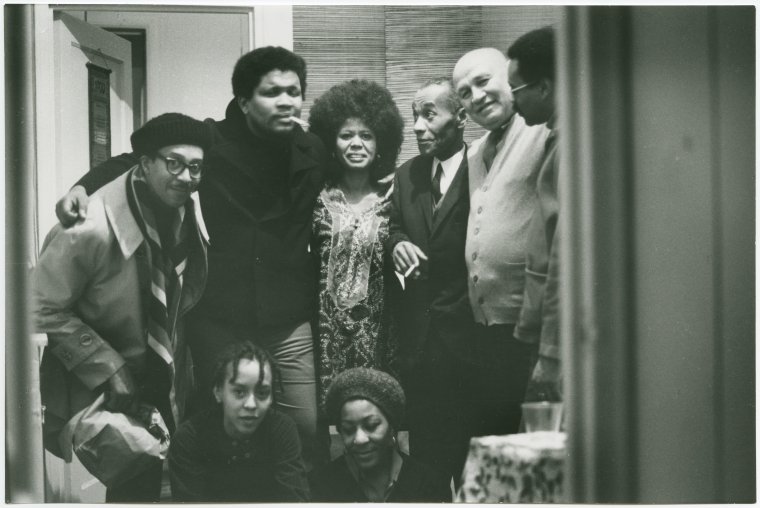Exploring the Literary Within the Black Power Movement

When we explore the dynamics of the Black Power Movement, we must not fail to explore the Black Arts Movement as well. It was the artistic voice that helped increase political activism and express the importance of cultural values through various art forms.
Founded by Imamu Amiri Baraka, who was formerly known as Leroi Jones, the Black Arts Movement came at a time when African Americans were mourning the loss of their leader, Malcolm X. His sudden death would spark Baraka’s literary and political activism. Aligning himself with the principles of Malcolm and the tenets of the Black Power movement, Baraka sought to give birth to a black nation within America by establishing his own notion of the black aesthetic through his essays, poems, and plays.
In 1965, Baraka, along with Charles Patterson, William Patterson, Clarence Reed, and Johnny Moore founded the Black Arts Repertory Theatre School. It was a space that allowed for the creation of performance art, writing classes, music, philosophy, and poetry. Although the theater closed shortly after due to lack of funding, it did not stop Baraka from delivering his political message through controversial plays such as Dutchman, Jello, Slave Ship, and The Toilet.
In 1968, Baraka, along with scholar and major contributor to the Black Arts Movement, Larry Neal, published Black Fire: An Anthology of Afro-American Writing. This anthology was a collection of essays from scholars and activists like John Henrik Clarke and James Boggs as well as literary works from the likes of Sonia Sanchez, Larry Neal, and many others.
Although not included within the anthology, the Black Arts Movement produced many other notable writers as well, such as Ishmael Reed, Nikki Giovanni, Toni Cade Bambara. These writers promoted the black aesthetic within their work, while acknowledging self-love. In her poem, “Walking Down Park,” Nikki Giovanni writes:
Ever, did you ever, sit down
and wonder about what freedom’s freedom
would bring
it’s so easy to be free
you start loving yourself
then those who look like you
all else will come
Giovanni’s lyrical poetry exemplifies the determination of those involved in both the Black Arts and Black Power Movements to establish an ideology inspired by black culture, identity, and pride.
As we celebrate the 50th anniversary of the Black Power Movement this June, let’s not forget the political contributions that the Black Arts Movement made. The two movements allowed artists who were activists—and vice versa—to organize, and perform their works. Let’s also not forget that by exploring the Black Arts Movement, art can serve as a means of protest and should not be separated from the political.
Join us as we acknowledge the 50th anniversary of the Black Power Movement with former Black Panthers Kathleen Cleaver and Jamal Joseph, who will help us launch our year-long examination. You may register on EventBrite for this event taking place on Wednesday, June 15 at 6:30 PM, or tune in via Livestream.
Read E-Books with SimplyE
 With your library card, it's easier than ever to choose from more than 300,000 e-books on SimplyE, The New York Public Library's free e-reader app. Gain access to digital resources for all ages, including e-books, audiobooks, databases, and more.
With your library card, it's easier than ever to choose from more than 300,000 e-books on SimplyE, The New York Public Library's free e-reader app. Gain access to digital resources for all ages, including e-books, audiobooks, databases, and more.
If you don’t have an NYPL library card, New York State residents can apply for a digital card online or through SimplyE (available on the App Store or Google Play).
Need more help? Read our guide to using SimplyE.